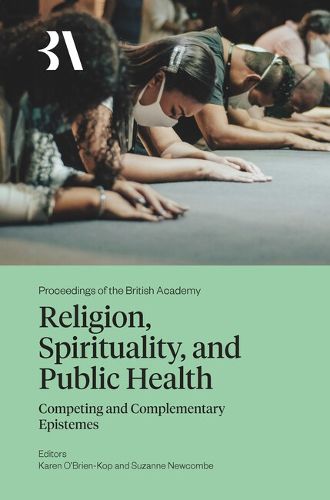Readings Newsletter
Become a Readings Member to make your shopping experience even easier.
Sign in or sign up for free!
You’re not far away from qualifying for FREE standard shipping within Australia
You’ve qualified for FREE standard shipping within Australia
The cart is loading…






Religion, Spirituality, and Public Health focuses on exploring the role of different 'ways of knowing' or arriving at truth, i.e. epistemes, particularly those found in religious and alternative health milieus. While biomedical solutions offer a dominant narrative, these are articulated differently in global contexts. Moreover, individuals often draw upon alternative framings that are sometimes oppositional to and at other times engaged with directives from medical and governmental authorities.
The focus of this volume is worldviews and epistemes that are often marginalised or rejected in dominant discourses - from shamanism in Korea to African Pentecostalism in Britain, and from global online 'AntiVax' narratives to traditional Siddha medicine in South India. Detailed case studies explore the contested, competing and strategically aligned relationships between mainstream and marginal epistemes; between religious healing, spirituality and biomedicine; and between politics and belief. These explorations promote greater insight into how marginalised religious epistemes are employed. Which beliefs and practices are drawn upon to create meaningful and effective responses? And how can we better understand the depth and breadth of these reactions to design more successful public health strategies for future global health crises?
$9.00 standard shipping within Australia
FREE standard shipping within Australia for orders over $100.00
Express & International shipping calculated at checkout
Religion, Spirituality, and Public Health focuses on exploring the role of different 'ways of knowing' or arriving at truth, i.e. epistemes, particularly those found in religious and alternative health milieus. While biomedical solutions offer a dominant narrative, these are articulated differently in global contexts. Moreover, individuals often draw upon alternative framings that are sometimes oppositional to and at other times engaged with directives from medical and governmental authorities.
The focus of this volume is worldviews and epistemes that are often marginalised or rejected in dominant discourses - from shamanism in Korea to African Pentecostalism in Britain, and from global online 'AntiVax' narratives to traditional Siddha medicine in South India. Detailed case studies explore the contested, competing and strategically aligned relationships between mainstream and marginal epistemes; between religious healing, spirituality and biomedicine; and between politics and belief. These explorations promote greater insight into how marginalised religious epistemes are employed. Which beliefs and practices are drawn upon to create meaningful and effective responses? And how can we better understand the depth and breadth of these reactions to design more successful public health strategies for future global health crises?